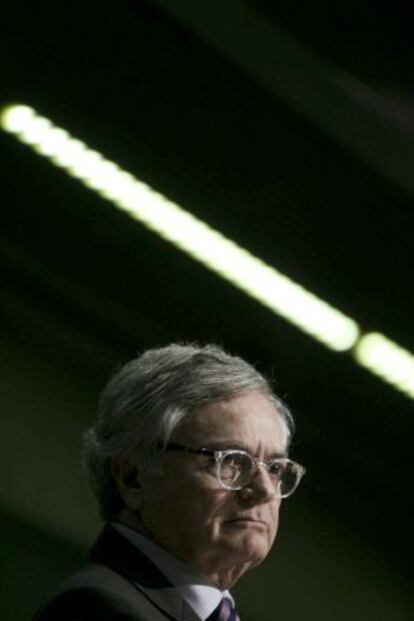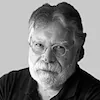Show some pity for the powerful
Thinker Moisés Naím argues that being in charge isn't what it used to be

Power is what we exercise over others that leads them to behave in ways in which they would not otherwise have behaved; it is the ability to direct or prevent current or future actions by groups or individuals. This is the gist of Moisés Naím's latest book, The End of Power, which posits that power not only guarantees domination and the establishment of winners and losers (negative social function), it also organizes communities, society, markets and the world (positive social function).
Hobbes explained it quite well: because power is a primitive yearning, it follows that human beings are inherently conflict-prone and competitive. If they are allowed to express their natural tendencies without a power to curtail and direct them, they will fight one another until there is nothing left to fight for. But if they obey a "common power," they can channel their efforts toward the construction, not destruction, of society.
Most analysts believe that the chief characteristic of power in the early 21st century is its concentration: the large number of major corporations and financial groups that are "too big to go under," the robustness of markets that veer towards oligopoly or monopoly, the politicians from major nations that serve the former (money and power reinforce each other and create barriers that are practically impenetrable to rivals), the extractive elites who work in their own best interest rather than for the common good, and so on.
But the US-based Venezuelan thinker does not share this view. While this concentration indeed exists, the chief characteristic of power these days is the growing limits on what the powerful can actually do. "I believe that power is becoming more fragile and vulnerable," says Naím, a regular columnist for EL PAÍS, the Financial Times and other media outlets who was also editor-in-chief of Foreign Policy for 14 years and Venezuela's trade minister between 1989 and 1990.
I believe that power is becoming more fragile and vulnerable"
And so the real danger to democracy is not the dictatorship of the markets or the monopolies that concentrate undesirable amounts of power. Rather, the real threat lies at the opposite end of the spectrum: situations in which power is too fragmented, disseminated and decomposed, generating chaos and anarchy. The trouble is not with the plutocrats but with the micropowers - a vague cloud of actors whose fragmentation creates systematic obstacles and paralysis and delays in decision-making. Essentially, nobody has enough power to do what everyone knows must be done. That is why democracies begin to be less efficient when governments are unable to make necessary, urgent decisions as a result of the fragmentation of power and the proliferation of groups and individuals with the ability to block processes and decisions, but without the power to impose a program or a strategy.
Therefore, if there is a mounting risk to democracies, it is not coming from the concentration of power by the elites, or by conventional modern threats (such as Chinese hegemony) or even pre-modern ones (radical Islam). Instead, the danger lies within societies themselves with the rise of movements that either express or piggyback on social indignation, from the new far-right and far-left parties in Europe and Russia to the Tea Party in the United States. On the one hand, says Naím, each one of those movements is a manifestation of the decay of power, because they owe their influence to the decline of the barriers that sheltered incumbents. On the other hand, the incipient rage they express is chiefly due to the alienation produced by the decline of traditional indicators of order and economic security. And here is where Naím takes a bold step forward, when he notes that these movements seek their compass in the past ("nostalgia for the Soviet Union, 18th-century readings of the US Constitution by characters in period costume, Osama Bin Laden's exhortations about the restoration of the Caliphate, and Hugo Chávez's paeans to Simón Bolívar"), revealing "how much the decay of power, if we fail to adjust to it and move it toward the social good, may backfire and turn destructive."
The decay of power - not its concentration - is due to three revolutions that have transformed social reality on the planet: the "more" revolution (there is a growing abundance of everything), the "mobility" revolution (this "more of everything" reaches everywhere at a lower cost) and the "mentality" revolution (the population's expectations grow at a faster pace than any government's ability to satisfy them).
Naím's book is very controversial. What he defends contradicts the perception of a majority of analysts, and above all, it contradicts the views of the losers in this crisis - the longest in eight decades - who feel that the main culprits are the powerful actors who have abused their position (the famous top one percent), not the micropowers who reacted to this polarization of the social classes.
But those who disagree with Naím's theory will have a hard time countering the overwhelming array of empirical data on which he bases his views; they will also have to avoid oversimplification and pointing the finger of blame at single causes: the decay of power, as the author claims, is fertile ground for new demagogues who exploit feelings of disappointment, promise change and take advantage of the disconcerting cacophony created by a profusion of actors, voices and proposals.
Tu suscripción se está usando en otro dispositivo
¿Quieres añadir otro usuario a tu suscripción?
Si continúas leyendo en este dispositivo, no se podrá leer en el otro.
FlechaTu suscripción se está usando en otro dispositivo y solo puedes acceder a EL PAÍS desde un dispositivo a la vez.
Si quieres compartir tu cuenta, cambia tu suscripción a la modalidad Premium, así podrás añadir otro usuario. Cada uno accederá con su propia cuenta de email, lo que os permitirá personalizar vuestra experiencia en EL PAÍS.
¿Tienes una suscripción de empresa? Accede aquí para contratar más cuentas.
En el caso de no saber quién está usando tu cuenta, te recomendamos cambiar tu contraseña aquí.
Si decides continuar compartiendo tu cuenta, este mensaje se mostrará en tu dispositivo y en el de la otra persona que está usando tu cuenta de forma indefinida, afectando a tu experiencia de lectura. Puedes consultar aquí los términos y condiciones de la suscripción digital.









































